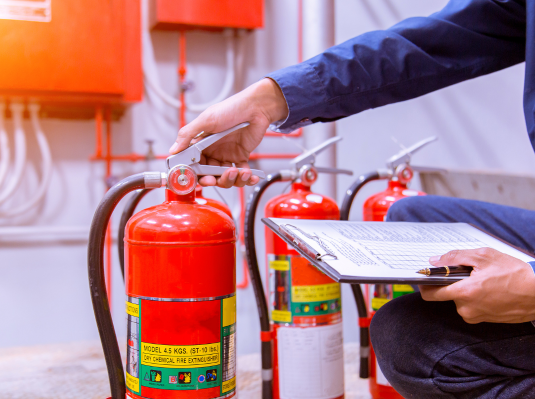
Understanding how to prepare for such emergencies and knowing the steps to take in the aftermath can make a substantial difference in safeguarding your home and recovering from potential losses. This article will guide you through essential fire preparedness tips and provide crucial information on handling insurance matters should a fire occur.
How to Prepare for and Prevent a Fire
Home fires spread incredibly fast, and a house can be engulfed in flames in just five minutes. The rapid spread of fire is accompanied by thick black smoke, which can quickly impair vision and turn your home into a dark, disorienting environment. Inhaling hot air and toxic gases from the fire can cause severe lung damage and make you feel drowsy and confused, further complicating escape efforts. Preparation is key to help prevent fires that cause damage to your home and potentially threaten your life.
Prepare Your Home
To enhance fire safety in your home, take the following steps:
-
Install Smoke Alarms: Place smoke alarms in key areas, especially outside sleeping areas, to ensure early detection of any fire.
-
Test Smoke Alarms Monthly: Regularly test your smoke alarms to confirm they are functional, and change the batteries as needed.
-
Protect Important Documents: Store crucial documents in a fire-resistant safe and keep digital copies. In the event of a fire, you may not have time to retrieve these items.
-
Document Your Belongings: A house fire can render your home and it’s contents unrecognizable. In the event that a fire does occur, you want to have as many resources as possible to recall all of the items that made your house a home. Do a video walkthrough of your home opening cabinets, closets, and drawers along the way to created a log of the items you own.
Make a Home Fire Escape Plan
Having a well-thought-out escape plan is vital. Ensure every family member knows the plan, which should include:
-
Two Ways Out of Every Room: Identify two exits from each room, such as doors and windows.
-
Window Removal: Teach everyone how to safely remove or open windows for an escape route.
-
Educate Children: Instruct children not to hide from firefighters and to follow the escape plan diligently.
What to Know About House Fires and Insurance
In the unfortunate event of a house fire, it's essential to document the damage before disposing of any items. Create an inventory of all damaged belongings to present to your insurance company. Additionally, save receipts for any new items you purchase, as these may be reimbursable through your insurance policy.
How Does My Homeowners Policy Cover House Fires?
Homeowners insurance typically covers the most common types of fires, including those caused by:
-
Faulty electrical wiring
-
Cooking accidents
-
Candles
-
Fireplaces and heaters
-
Other household items
Accidental fires or those caused by user error are usually covered, but arson is not. Most homeowners do not need a separate fire insurance policy. However, it's crucial to work closely with your insurance agent to determine the appropriate level of coverage for your home. Factors such as local construction costs and your home's location influence this decision. You might consider endorsement options like extended or guaranteed replacement coverage for more robust protection.
Keep in mind that standard homeowners insurance typically does not cover wildfires in a high-risk zone or damage to licensed vehicles in a garage.
Do I Need Insurance to Cover Fires in an Apartment?
Renters insurance generally covers fire damage caused by:
-
Accidents
-
Faulty appliances
-
Electrical issues
This coverage includes reimbursement for personal property damaged by fire but does not extend to items owned by your landlord or structural damage to the building. If you are responsible for fire damage to neighboring units or your landlord’s property, your policy’s liability coverage may also apply.
Being prepared for a potential house fire and understanding your insurance coverage are crucial steps in protecting your home and ensuring a smoother recovery process. Implement fire prevention measures, create a solid escape plan, and review your insurance policy regularly to be well-equipped to handle the unexpected.
The contents of this article are for informational purposes only. You should not act or refrain from acting based on this information without first consulting a Goosehead licensed agent. We disclaim all liability for actions taken or not taken by you based on the contents of this article which is provided "as is." Goosehead makes no representation that this content is error-free.
Source: ready.gov/home-fires
Get a Quote


